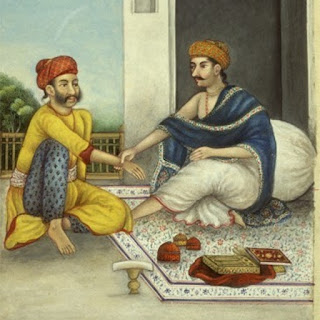I read a fascinating discussion on the contrasts between ancient and modern medicine which really struck a chord since I have spent much time researching and writing about the concepts of experience versus evidence in medicine.
Reflecting on cupping therapy, the paper's author, Dr. Anna Dinallo of the University of New Mexico, made the observation that modern medicine is based solely on knowledge of anatomy, which is learned primarily through dissection. Therefore, all modern medical knowledge is really obtained from a dead body. The author also argues that modern practitioners use anatomical dissections to discredit alternative medicine which does not have an anatomical foundation.
I found that really interesting. All ancient medicine is based on experience. Diagnosis itself relies on examination through observation of pulse, smell, and sound-- all senses that the author argues rightly, are absent in a corpse during dissection. In fact, Ayurveda has 8 distinct examinations that are used in the diagnosis of disease: appearance, voice, eyes, skin, urine, stool, pulse, and tongue.
 |
| The eight methods of diagnosis in Ayurveda |
Also, at its core, ancient medicine like Ayurveda and TCM uses a holistic healing philosophy. For instance, TCM is based on the Taoism model of holism which believes that systems and their properties must be viewed together, not just as a collection of parts. Taoists believe humans are an integral part of nature and an extension of the universe, so everything about the human body has to be seen through its relation with nature. Disease, according to this concept, is caused by an imbalance in the body, which is the result of climate, emotions, and/or trauma.
Even if you don't believe this philosophy, it is true that many experience-based therapies have been proven to be highly effective despite lacking scientific evidence (so far). I am not supporting having blind faith in medicine by any stretch, but making the observation that many many therapies that seemed like "quack" medicine have been proven to work, and the evidence has followed later. This includes acupuncture, yoga, massage therapy, even cupping to a certain extent. Sure, some of the ancient understanding of the human body was inaccurate because they lacked a clear idea of human anatomy, but that doesn't make its medicine, which was developed over thousands of years of observation and experience, less deserving of credit. Physicians were trained to diagnose imbalances through external observation alone.
 |
| Consultation with Ayurvedic practitioner |
Just as modern medicine can be a hit or miss for many diseases (most obvious example is cancer), ancient medicine likely had its great successes and failures and it requires careful study and understanding to separate the two and use the wisdom of our ancestors as a stepping stone to expand our knowledge of medicine.
Sources
https://www.planetayurveda.com/diagnosis-methods-ayurveda/
https://www.amcollege.edu/blog/taoism-and-traditional-chinese-medicine
Comments
Post a Comment